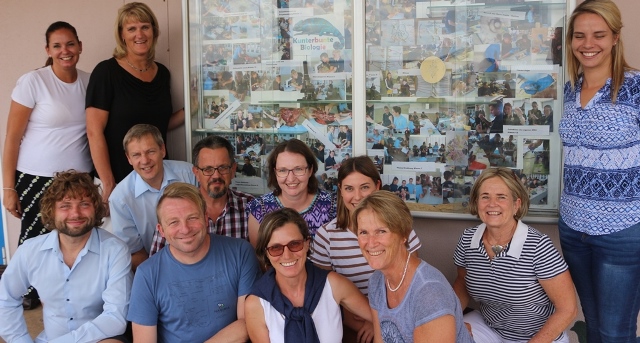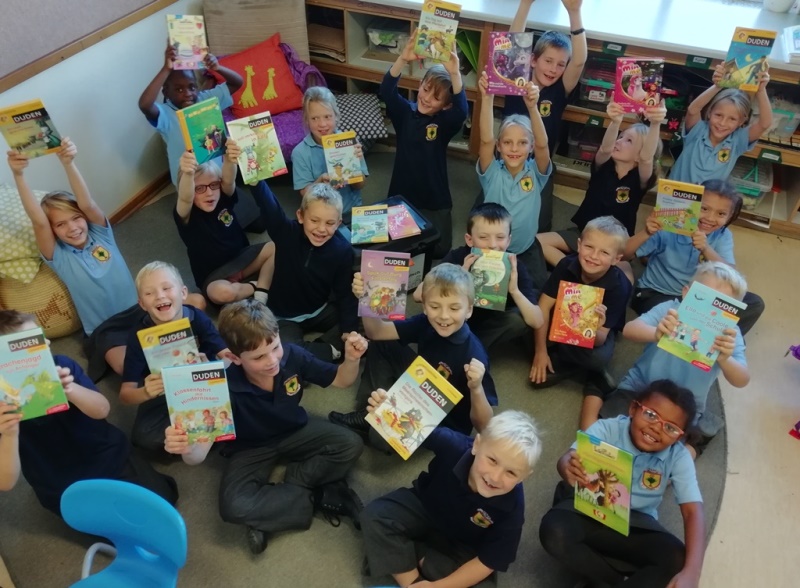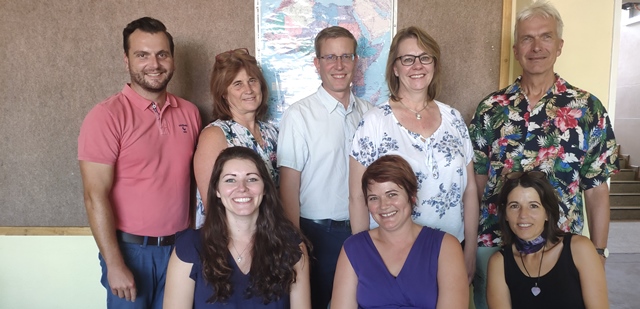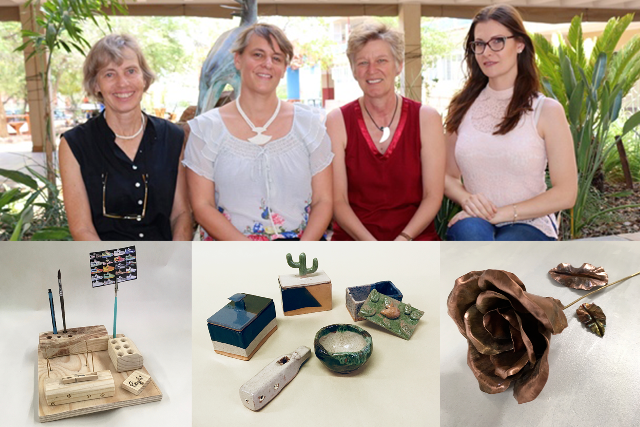
“Biology is a wonderful gift that was
made to us by nature.” (George Church)
The Biology
department comprises motivated, cooperative colleagues, who engage their
learners in the excitement for biology in a fun-filled, enjoyable and
collaborative way.
Curriculum
The
internal school curriculum of junior secondary level has been compiled with close reference to the 2016
education plan of the Federal State of Baden Württemberg.
Grades
5,6,7 and 9 are taught once a week in a double period.
Topics in
the curriculum include areas such as:-
diversity
and ecological significance of various vertebrates, invertebrates and different
flowering plants.
-
The
visit to the bird rehabilitation centre Narrec or a rally through Windhoek's
botanical garden makes the newly acquired knowledge more tangible to the
learners.
-
Description
of animal and plant cells, organs and organisms as systems
-
The
school is equipped with great microscopes, which learners enjoy using frequently.
-
Structure
and function of different organ systems and basic procedures of human
development and reproduction.
Learners
acquire knowledge through independent and practical work in
work stations and by
application of a large diversity of methods. They acquire competences in the
three process-related areas of knowledge “knowledge acquisition", “communication
“and “evaluation”, which aim at the successful and responsible management of
tasks and problems. Knowledge, skills and abilities for their own actions are
thereby interlinked.
In grade 6,
learners are given the opportunity to visit the
NADEET environmental education centre for an entire week. With a versatile and well-organised programme,
sustainability and adaption of various organisms to desert life are the focus
of the excursion. This week is an unforgettable experience for all learners.
The
internal
school curriculum for the secondary section covers
the following topics:
-In the secondary section, focal topics are metabolic
physiology, genetics and genetic engineering, neurobiology, ecology and
evolution.
Through various internally
differentiated teaching methods, the department manages to arouse the learners’
interest for different biological topics and make them understandable to them.
In grade 11, a one-week
desert excursion to the Gobabeb research station is offered - a great experience on the topic of
ecology.
These are only a few examples on how
method diversity can stimulate pleasure in the subject.
Performance assessment in Biology
In addition
to conventional performance assessment methods (class tests, short tests, oral
presentations, oral participation, projects) the following aspects are taken
into consideration:
Assessment of work processes
Process
assessment includes, among others:monitoring
of working-/learning behavior, Monitoring of group
processes
Assessment of presentations
These include
e.g. - oral presentations
presentations
learner
being the instructor
Assessment of study- and work outcome
Examples
here are:written
documentation of presentations Creation
of posters / models
Keeping
of experiment protocols
It is
advisable to develop the assessment criteria in consultation with the learners
or to at least introduce them in an understandable way.
Overview of the scoring system in biology
| Grade | Class
| No. of tests
| Test : other | oral portion of others
|
Junior sec.
| 5 | 3 | 1:1 | at least 1/3 of the remaining mark
|
| 6 | 3 | |
|
| 7 | 3 | |
|
| 9 | 3 | |
|
| NSSC | 10 | 3 | 2:1 | at least 1/3 of the remaining mark
|
| 11 | 3 | |
|
| 12 | 2 | |
|
| DIA | 10 | 4 | 1:1 |
|
| 11.1 | 2 | |
|
| 11.2 | 2 | |
|
| 12.1 | 2 | |
|
| 12.2 | 1 | |
|
Insight into our biology lessons








